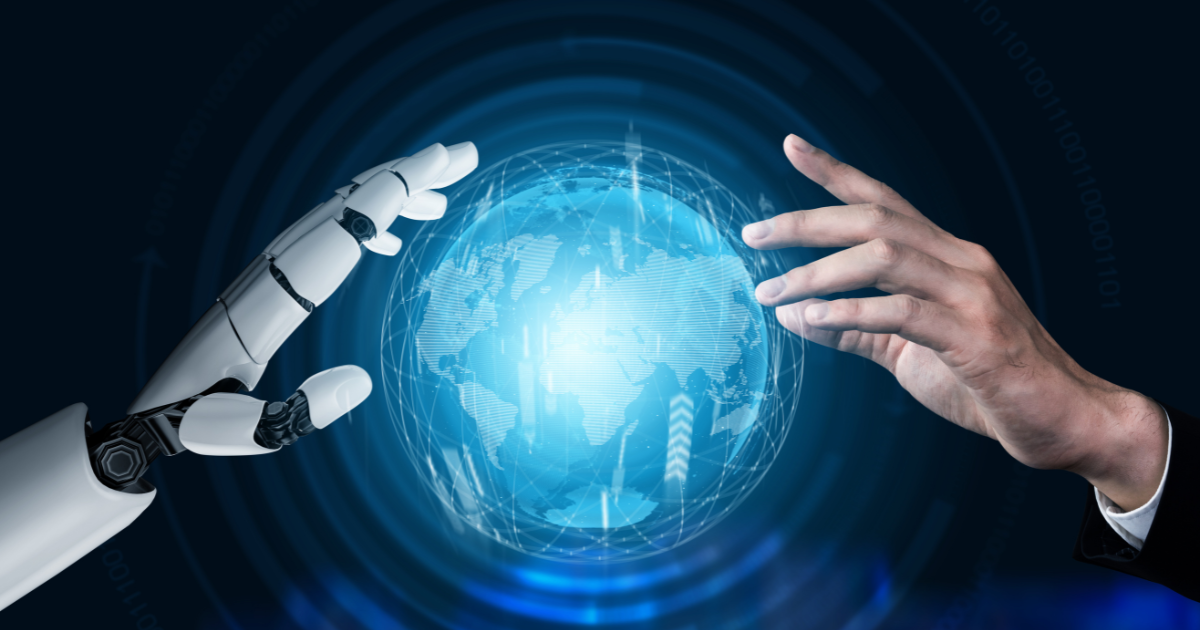Artificial Intelligence (AI) has become increasingly prevalent in various industries, and AI recruitment is no exception. AI has the potential to revolutionize the way organizations find and hire talent, making the process more efficient and accurate. As technology continues to advance, it is important to discuss the benefits and challenges of AI recruitment in order to fully understand its potential impact on the future of hiring.
The Benefits of AI Recruitment: Efficiency and Accuracy
One of the key benefits of AI recruitment is its ability to streamline the hiring process and save time for both recruiters and candidates. AI can automate repetitive tasks such as resume screening, candidate sourcing, and interview scheduling, allowing recruiters to focus on more strategic aspects of their role. This not only speeds up the hiring process but also ensures that recruiters have more time to engage with candidates and make informed decisions.

In addition to efficiency, AI recruitment can also increase accuracy in candidate selection. By using algorithms and machine learning, AI can analyze large volumes of data from resumes, social media profiles, and other sources to identify the most qualified candidates for a particular role. This reduces human error and bias that may occur during manual screening processes. AI can also predict a candidate’s likelihood of success based on historical data, helping recruiters make more informed decisions.
AI Recruitment and Diversity: Opportunities and Challenges
The AI recruitment has the potential to increase diversity in the workplace by removing unconscious biases that may exist in traditional hiring processes. By relying on data-driven algorithms, AI can focus solely on a candidate’s qualifications and skills, rather than factors such as gender, race, or age. This can help organizations build more diverse teams and foster an inclusive work environment.
However, there are also potential challenges and biases that may arise with AI recruitment. If the algorithms used in AI systems are trained on biased data or if there is a lack of diversity in the data used, the AI system may inadvertently perpetuate existing biases. For example, if historical data shows that certain demographics have been underrepresented in certain roles, the AI system may learn to favor candidates from those demographics. It is crucial for organizations to regularly review and update their AI systems to ensure fairness and avoid discrimination.


The Role of AI in Candidate Screening and Selection
AI can play a significant role in candidate screening and selection by automating the initial screening process. Instead of manually reviewing hundreds or even thousands of resumes, AI algorithms can quickly analyze and rank candidates based on predefined criteria. This saves recruiters a significant amount of time and allows them to focus on more strategic aspects of the hiring process.
However, there are potential drawbacks to relying solely on AI for candidate screening and selection. AI algorithms may not always accurately assess a candidate’s potential or fit for a particular role. They may overlook important skills or qualifications that are not explicitly mentioned in a resume or application. Additionally, AI systems may not be able to evaluate soft skills such as communication or teamwork, which are often crucial for success in a role. Therefore, it is important for organizations to strike a balance between using AI for efficiency and incorporating human judgment for a more holistic evaluation of candidates.
AI Recruitment and Candidate Experience: Balancing Automation and Personalization
AI can also improve the candidate experience by automating certain aspects of the recruitment process. For example, chatbots can be used to answer frequently asked questions, provide updates on the status of an application, or schedule interviews. This reduces the time candidates spend waiting for responses and provides them with a more seamless and personalized experience.
However, it is important to strike a balance between automation and personalization in recruitment. While automation can save time and improve efficiency, it should not replace human interaction entirely. Candidates still value personal connections and want to feel valued throughout the hiring process. Therefore, organizations should use AI to enhance the candidate experience, but also ensure that there are opportunities for human interaction and personalized communication.
The Future of AI Recruitment: Predictive Analytics and Machine Learning


The future of AI recruitment holds great potential for further advancements in predictive analytics and machine learning. Predictive analytics can help organizations identify patterns and trends in their hiring data, allowing them to make more accurate predictions about a candidate’s likelihood of success. This can be particularly useful in identifying high-potential candidates or predicting turnover rates.
Machine learning can also play a significant role in the future of AI recruitment. By continuously learning from new data, machine learning algorithms can improve their accuracy and effectiveness over time. This can help organizations make more informed decisions and improve the overall quality of their hires.
However, there are also potential challenges associated with the use of predictive analytics and machine learning in recruitment. Organizations must ensure that the data used to train these algorithms is accurate, unbiased, and representative of the diverse talent pool they wish to attract. Additionally, there may be ethical considerations around the use of personal data and privacy rights. It is important for organizations to be transparent about how they use AI in recruitment and obtain consent from candidates before collecting or analyzing their data.
The Ethical Considerations of AI Recruitment: Bias and Discrimination
One of the key ethical considerations in AI recruitment is the potential for bias and discrimination. If AI algorithms are trained on biased data or if there is a lack of diversity in the data used, the AI system may inadvertently perpetuate existing biases or discriminate against certain groups. For example, if historical data shows that certain demographics have been underrepresented in certain roles, the AI system may learn to favor candidates from those demographics.
To mitigate these risks, organizations must regularly review and update their AI systems to ensure fairness and avoid discrimination. This includes regularly auditing the algorithms used, monitoring for bias, and making necessary adjustments to improve fairness and inclusivity. It is also important to involve diverse stakeholders in the development and implementation of AI systems to ensure a wide range of perspectives are considered.
The Impact of AI Recruitment on Human Resources Professionals
The increasing use of AI in recruitment has the potential to impact the role of human resources (HR) professionals. While AI can automate certain tasks and streamline processes, it is unlikely to replace the need for human judgment and decision-making. HR professionals will still play a crucial role in defining the criteria and parameters used by AI algorithms, interpreting the results, and making final hiring decisions.
AI can free up HR professionals’ time by automating repetitive tasks such as resume screening or interview scheduling, allowing them to focus on more strategic aspects of their role. This includes building relationships with candidates, conducting in-depth interviews, and assessing cultural fit. HR professionals will also play a key role in ensuring that AI systems are fair, unbiased, and aligned with the organization’s values and goals.
The Challenges of Implementing AI Recruitment: Cost and Training
While there are many potential benefits to implementing AI recruitment, there are also challenges that organizations may face. One of the main challenges is the cost associated with implementing AI systems. Developing and maintaining AI algorithms can be expensive, especially for smaller organizations with limited resources. Additionally, organizations may need to invest in training their HR professionals on how to effectively use and interpret AI tools.
Another challenge is ensuring that AI systems are accurate, fair, and unbiased. This requires organizations to carefully select and train their algorithms using diverse and representative data. Regular monitoring and auditing of the algorithms are also necessary to identify and address any biases or issues that may arise.
The Role of AI in Employer Branding and Talent Acquisition
AI can also play a significant role in employer branding and talent acquisition. By analyzing data from various sources such as social media, job boards, and employee reviews, AI can help organizations identify trends and insights about their employer brand. This can help organizations understand how they are perceived by candidates and make informed decisions to improve their employer brand.
AI can also assist in talent acquisition by automating candidate sourcing and matching. By analyzing candidate profiles and job requirements, AI algorithms can identify the most suitable candidates for a particular role. This saves recruiters time and ensures that they are targeting the right candidates for their organization.
However, there are potential drawbacks to using AI in employer branding and talent acquisition. AI algorithms may not always accurately capture the nuances of an organization’s culture or values. Additionally, relying solely on AI for candidate sourcing may result in a lack of diversity in the candidate pool. Therefore, it is important for organizations to use AI as a tool to enhance their employer branding and talent acquisition efforts, but also incorporate human judgment and personalization.
The Potential of AI Recruitment in 2024 and Beyond
In conclusion, AI recruitment has the potential to revolutionize the way organizations find and hire talent. It offers numerous benefits such as increased efficiency, accuracy, and improved candidate experience. However, there are also challenges that need to be addressed, including potential biases and ethical considerations.
As technology continues to advance, the future of AI recruitment holds great potential for further advancements in predictive analytics and machine learning. However, organizations must ensure that these advancements are used responsibly and ethically to avoid bias and discrimination.
Overall, AI recruitment has the potential to continue evolving and improving in the future. By striking a balance between automation and personalization, organizations can leverage AI to enhance their recruitment processes and make more informed hiring decisions. With careful consideration of the benefits and challenges, AI recruitment can help organizations build diverse and high-performing teams that drive success in the years to come.




